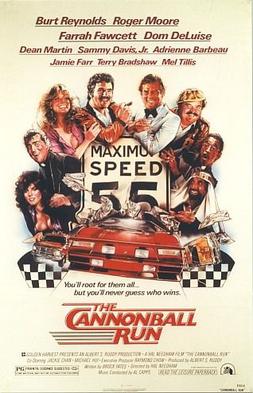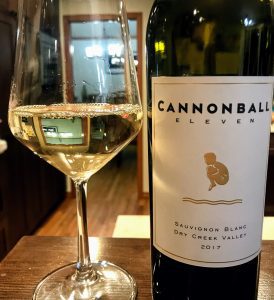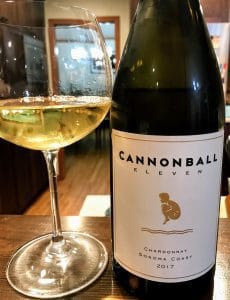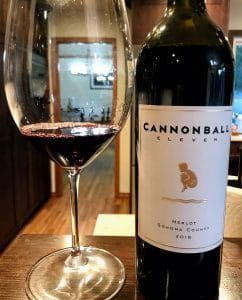The 1981 Burt Reynolds film Cannonball Run is a classic campy action film. But it’s also one of those films that can get a little cringe-worthy watching it in a modern light.

Based around a fabled cross-country race, the film has an all-star cast that includes Reynolds, Farrah Fawcett, Dom DeLuise, Roger Moore, Dean Martin, Jackie Chan, Sammy Davis Jr., Peter Fonda, Mel Tillis and Terry Bradshaw as well as a heap of “good ole boy” bawdiness.
Fawcett’s character gets kidnapped to be a fake patient in Reynolds’ souped up ambulance. She’s drugged by a creepy doctor (played by Jack Elam) when it’s convenient for Reynolds to use her unconscious body to avoid speeding tickets.
When she comes to, she sleepily smiles and asks if any of the men laid a finger on her while she was out. The joke was that the only thing they did was give her “a little prick” (of a needle, har, har). But, of course, everything is okay because she eventually falls for her captor. Never mind that he didn’t care to even want to learn her name at the beginning and just called her “Beauty”.
Then there was the Vixen Team played by Marcie Thatcher and Jill Rivers who responded to every obstacle in their path by unzipping their racing suits to show more cleavage.
Yet as problematic as Cannonball Run is by today’s standards, it’s hard to judge it too harshly. It was certainly a different time 37 years ago and Cannonball Run was never meant to be taken as a serious film. It was always just a silly, popcorn muncher.
Why am I waxing philosophically about an old Burt Reynolds film?
You could blame a late night Netflix binge. But really why we’re here is because of my recent experience with the Cannonball Eleven wines from Share a Splash Wine Co.
While the Cannonball brand was built on value oriented supermarket wines in the $10-15 range (the popcorn munchers of the wine world), the Cannonball Eleven series is marketed as a more elevated and terroir driven offering.
It’s more Academy Award nominated Boogie Nights Burt Reynolds than Cannonball Run Reynolds–with certainly less “Captain Chaos”.
Intrigued by Cannonball’s all-star cast of Dennis Hill (formerly of Seghesio, Alexander Valley Vineyards, Martin Ray and founding winemaker of Blackstone) and Ondine Chattan (formerly of Ridge, Cline and Geyser Peak), I decided to give these new wines a try.
Full Disclosure: These wines were sent to me as samples.
The Background
Cannonball Wine Company was founded in 2006 in Healdsburg, Sonoma by Yoav Gilat and Dennis Hill.
Focusing on under $20 wines blended from a variety of California regions, the company eventually grew to include a portfolio of brands like Angels & Cowboys Wines, High Dive (a collaboration with Napa Valley winemakers Scott Palazzo of Palazzo Wines and Peter Heitz of Turnbull Wine Cellars) and the Marlborough winery Astrolabe.
In 2017, Cannonball Wine Company relaunched itself as Share a Splash Wine Co.
The Wines
2017 Cannonball Eleven Sauvignon blanc Dry Creek Valley ($24.99)

I’m not a big fan of grassy and green New Zealand Sauvignon blancs so this tropical but elegant Cannonball Eleven Sauvignon blanc hit a lot of pleasure notes.
A 100% Sauvignon blanc, the wine was primarily fermented in stainless steel with a small portion fermented in (presumably neutral) French oak barrels. Around 14,000 bottles were made.
Medium-plus intensity nose. Very tropical with lots of citrus starfruit and melon notes. What’s interesting is that you can get both the zest and pulp aromatics from the fruit. No sign of oak on the nose.
On the palate, the medium-plus acidity makes the tropical fruit tastes very fresh and juicy. Still no oak flavors but the medium body weight of the fruit is balanced by a creamy texture that isn’t that dissimilar to a white Bordeaux. The moderate finish keeps with the fresh tropical flavors but tilts more towards the zestier aspects of the fruit.
2017 Cannonball Eleven Chardonnay Sonoma Coast ($34.99)

I gave these wines nearly a month from when I received them to settle down from travel shock.
I suspect the awkwardness of this Chard is due to its youth,
A 100% Chardonnay, this wine was fermented in a combination of stainless steel and French oak barrels (20% new and 15% second fill). After fermentation, 40% of the wine was aged 8 months in neutral French oak barrels sur lie. Around 15,000 bottles were produced.
Medium-minus intensity nose. Tree fruits like apple with some pastry tart elements. A little vanilla and baking spice from the oak. Rather muted even as the wine warms in the glass.
On the palate, the apple notes carry through and also spice d’Anjou pear with them. There is still some of the pastry baking elements but the presence of oak is much more toned down. Medium-plus acidity gives balance to the medium-plus body fruit. There’s texture to the mouthfeel but it isn’t very malo driven. Unfortunately everything just quickly fades on the mid-palate ending on a practically non-existent finish.
2016 Cannonball Eleven Merlot Sonoma County ($34.99)
A blend of 94% Merlot with 6% Petite Sirah sourced from the Dry Creek and Russian River Valleys. The wine received a cold soak prior to fermentation in stainless steel before being aged in French oak barrels for 6 to 20 months. I suspect that probably the Petite Sirah was aged closer to the 6 month mark while most of the Merlot lots in the blend were aged longer.
Medium-plus intensity nose. Lots of oak with noticeable vanilla as well as chocolate latte aromatics. It’s a very toasty latte like the burnt coffee base of Starbucks. Underneath the oak and chocolate is some dark fruit but it’s hard to make out at this point.
On the palate, the chocolate definitely carries through and so does the dark fruit which become more defined as cherries. But also here is where a distinct streak of pyrazines, particularly jalapeno, emerges. Medium acidity adds a soft lushness to the medium-plus tannins. It’s just enough to hold up the full-bodied fruit. The moderate finish unfortunately lingers on the chocolate-covered jalapenos.
The Verdict
The Dry Creek Sauvignon blanc is by far the strongest of the three Cannonball Eleven wines I tried. It’s clearly California with the warm climate fruit but it has an elegant structure and mouthfeel that you don’t often find in California Sauvignon blancs. It’s versatile as an easy drinking sipper but has the depth to be a solid food pairing wine.
Compared to its peers, I would put the Cannonball Eleven above the similarly priced Emmolo and Duckhorn and not that far off from the $30-35 Cakebread Sauvignon blanc.
I suspect that the Sonoma Coast Chardonnay is in an awkward phase. It tastes a bit disjointed with some of the baby-fat of oak on the nose and the fruit quickly fading on the palate.
It seems to have decent structure and probably will improve with at least 6 months more bottle age. With its acidity and balance I can see this improving even for another 2 to 3 years.
But right now it reminds me more of the $13-16 Kendall Jackson Grand Reserve than it does other Sonoma Coast Chardonnays like Amici and Paul Hobbs’ Crossbarn which can often be had in the $23-26 range. With a price in the realm of Ramey, Failia and Patz & Hall’s Sonoma Coast bottlings, it’s hard to say the Cannonball Eleven Chardonnay is justifying that at the moment.
Oh but that Merlot…

Yeah, not my thing.
The only Cannonball Eleven wine that wouldn’t personally buy is the Merlot. The combination of overt oak, chocolate and pyrazines just isn’t my style. The best way I can describe this wine is as a bowl of chocolate covered cherries and jalapenos.
Maybe we did have some “Captain Chaos” after all.
I can possibly see this wine working for folks who aren’t as sensitive to pyrazines. If you can look past the green notes, it does have jammy, chocolately fruit with a lush mouthfeel. However, you can find wines in that style (particularly California red blends) for far less than $35.
